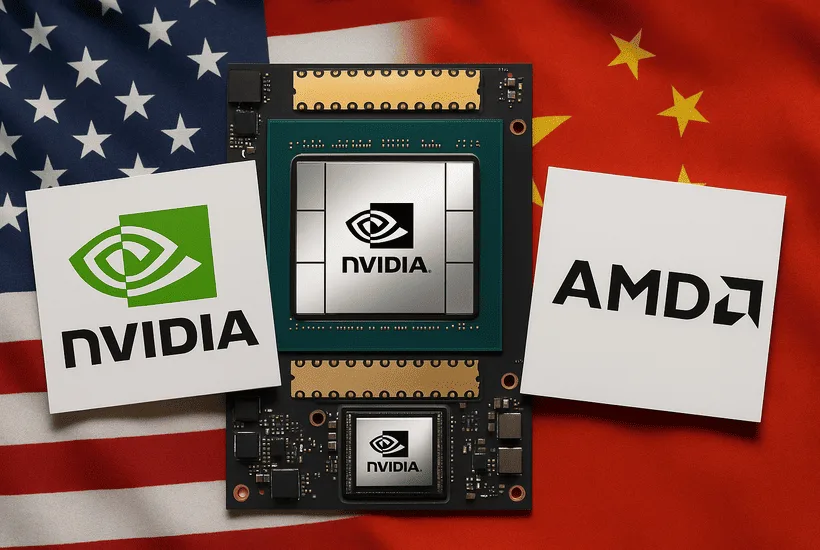Nvidia, on Tuesday, announced that it would soon restart sales of its H20 artificial intelligence (AI) chips to China following assurances from the U.S. government. The chip maker wrote in its blog post,CEO Jensen Huang recently met with President Trump to advocate for license approvals. He is also expected to visit Beijing for an event on Wednesday (July 16). This decision reverses an April ban by the Commerce Department, which had halted exports amid growing U.S.–China trade tensions.
The H20, a China‑specific version of Nvidia’s top‑tier accelerators, had been notably popular despite being ‘pushed’ to comply with export control limits. The ban forced Nvidia to write off approximately $5.5 billion in inventory and miss out on up to $15 billion in revenue.
Huang’s high‑level meetings in Washington and Beijing in the past reportedly helped smooth relations. In Beijing, Huang emphasized that America must “establish roots” in China’s massive and innovative AI market, while the message in Washington was ways to boost the importance of U.S. dominance in AI.
Following these engagements, the U.S. pledged to grant export licenses, and Nvidia said it expects shipments to resume soon. A Reuters report showed how Chinese firms like ByteDance and Tencent were pushing hard to enter Nvidia’s licensing whitelist. Nvidia has created this ‘whitelist’ where Chinese companies will have to register for potential purchases. This will then be forwarded to the U.S. government for export approval.
Shares of Nvidia, AMD jump
Market reaction has been strong since the announcement. Nvidia shares jumped around 5% pre‑market, signaling investor optimism. Analysts have noted that the move could open up $15–20 billion in annual revenue for the chip maker and even allow reversal of its prior inventory writedown.
AMD received similar assurances from the US Commerce Department and plans to restart shipments of its MI308 chips to China once licenses for sales are approved, the company said in a statement Tuesday. Shares of AMD jumped more than 5% in pre-market trading.
The U.S. initially imposed limits on Nvidia’s sales to China in 2022 through broad restrictions aimed at blocking China’s access to advanced AI technologies that might support its military. In response, Nvidia has repeatedly developed modified processors.



